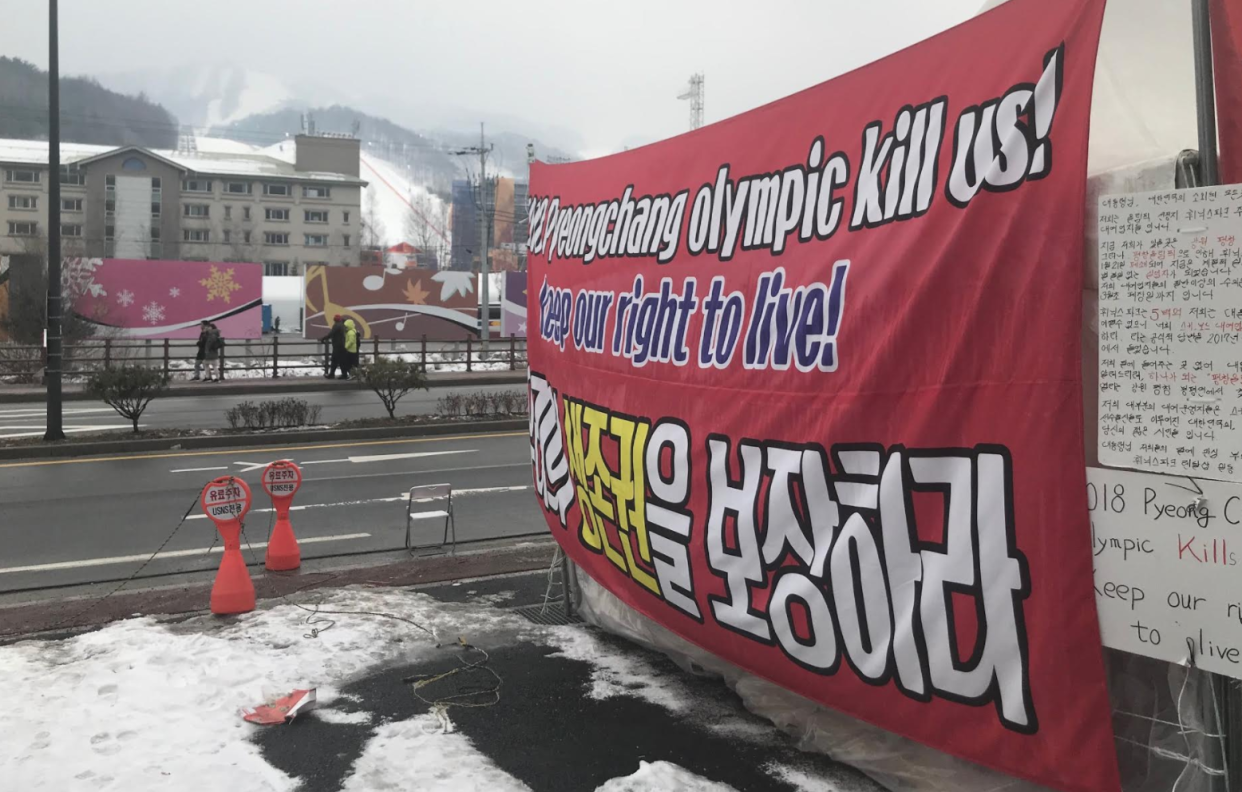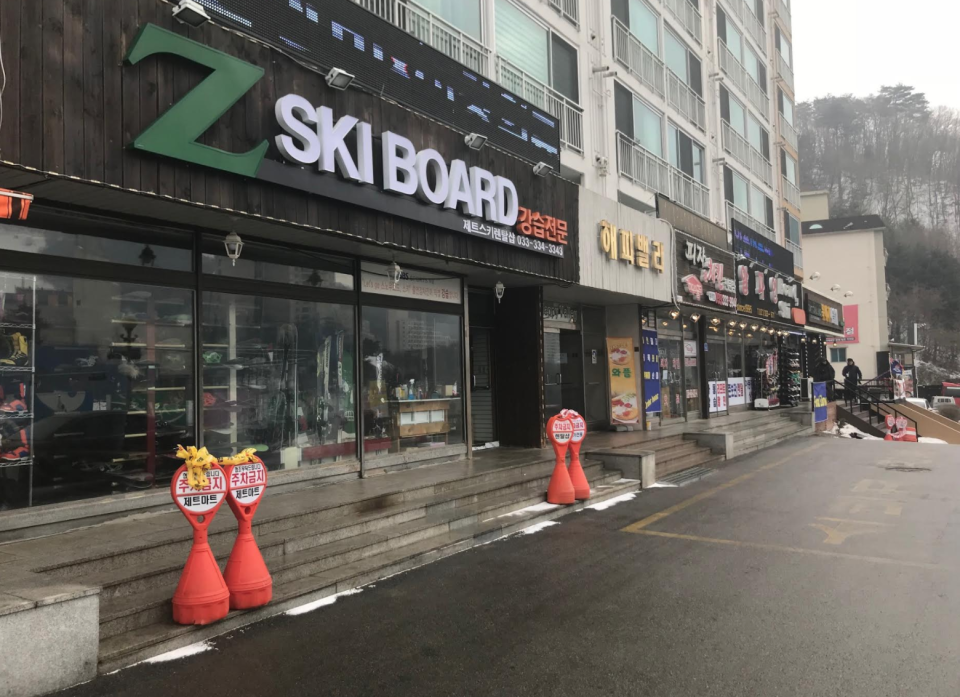'Olympic kill us': Stores across from ski venue struggling

BONGPYEONG-MYEON TOWNSHIP, South Korea — It’s the first official day of Olympic competition at Phoenix Park, the resort that’s hosting freestyle skiing and snowboard at the 2018 Olympics. As snowboarders begin their slopestyle runs, visitors poke around souvenir stands and sip at cups of hot tea.
Directly across the street, two men sit in chairs just inside the doors of the darkened Jun Rental, surrounded by poles, skis and boots. There’s nothing for them to do, and there hasn’t been for weeks, ever since the PyeongChang Olympic Organizing Committee shut down Phoenix Park’s ski slopes to prepare for the Games. Without an available ski slope, there’s no need for ski rental. And as a result, these shops are bleeding out, day by day.
Phoenix Park closed down on January 21 and isn’t scheduled to reopen until March 28, after both the Olympics and Paralympics are finished. Winters in South Korea generally don’t last much longer than that, so the ski rental shops are effectively shuttered until November. It’s a long time to go without income, and it’s stretched the region to breaking: of the estimated 50 shops that were forced to close, only about 20 are still even close to operational.
Now, they’ve joined forces and, as the “Phoenix Snow Park Rental Shop Association,” they’re hoping to draw the world’s attention to their plight. Directly across from the main entrance to Phoenix Park, in the parking lot of a small strip mall, they’ve raised large banners reading “2018 Pyeongchang olympic kill us! keep our right to live!”
It’s exactly the kind of publicity nightmare that the Olympics strives to avoid, and the shop owners know it. Inside a small tent in the parking lot, several local owners sit on benches, heating noodles in large pots. They welcome in a visitor with a pre-printed statement of purpose, written in fragmented English.
“Now that we are no longer to do our own business and we have already been closed all of the shops and desperately show up to the front of Phoenix Snow Park for the right to exist/tent strike with a month of contempt and ridicule,” the statement reads in part, and you can get the intent if not the exact linear meaning. “Do not reckon this could be the ‘successful olympic’ to menace all of local people’s right to live??”
“Very, very crying … No money, I don’t know,” says Jung-Chun Yoon, who claims to be a member of the 1988 Seoul Olympic judo team. “Every day and every night, very cry … Many people, very hungry.”

The owner of a rental store/restaurant whose name roughly translates to “Santa Burger,” he gets his point across more with gestures than words. He’s standing and coldly turns his back to demonstrate the way he says PyeongChang officials reacted to him, and he holds his hands open like a book to represent his children, whose education he’s now struggling to pay for.
“There are ups and downs of hosting the Olympic Games, and we have already earned the participation and consensus of the ski rental shops within the region,” Pyeongchang 2018 President Lee Hee-beom said during a Tuesday press conference. “And this is not something the organizing committee should directly deal with. It needs to be dealt with between the province, the regions and the ski rental shops. They are having conversations with the ski rental shops, and we’d like to apologize for the inconvenience. I think this can be resolved before the Games start.”
As the banners still flying on Day 1 of the Games attest: it wasn’t.
The Olympics have a long legacy of paving over a community’s rough spots before the world shows up, whether it was Atlanta giving the homeless one-way bus tickets in 1996 or Sochi rounding up and “disposing of” hundreds of stray dogs in 2014. This isn’t a moral crime on that level — the slopes will only be closed for a short period of time, relatively speaking — but that doesn’t make life any easier for the people who depend on a steady stream of tourism to survive.
Some shops are getting creative; one is charging for parking in front of its store. But at a rate of $5 per car, and room for maybe a dozen haphazardly parked vehicles, they aren’t exactly going to cash in via that route.
So they’re left to weather what’s left of the season however they can. And that’s the grim irony here: there’s substantial short-term pain, but there could be generational long-term gain.
Unlike so many Olympics, PyeongChang didn’t create venues out of thin air and expect/pray that people would continue to use them afterward. Phoenix Park was already a popular resort destination, and the cachet of the Olympics — plus the infrastructure improvements that include everything from widened roadways to a high-speed cross-country train — could bring boom times to the now-dark shops.
“Small shop owners around here are suffering,” says Peter Son, a longtime local resident. “But next year, who knows? Business may be booming.”
More Olympic coverage from Yahoo Sports:
• Mike Pence did not stand for unified Korea at PyeongChang Opening Ceremony
• Opening Ceremony sets world record with over 1,200 drones
• He’s back: Shirtless Tongan flag-bearer steals show at Opening Ceremony again
• Passan: Vonn’s image is put-together, but tears for grandfather are very real
• You may have been pronouncing ‘PyeongChang’ incorrectly this whole time
____
Jay Busbee is a writer for Yahoo Sports. Contact him at jay.busbee@yahoo.com or find him on Twitter or on Facebook.

